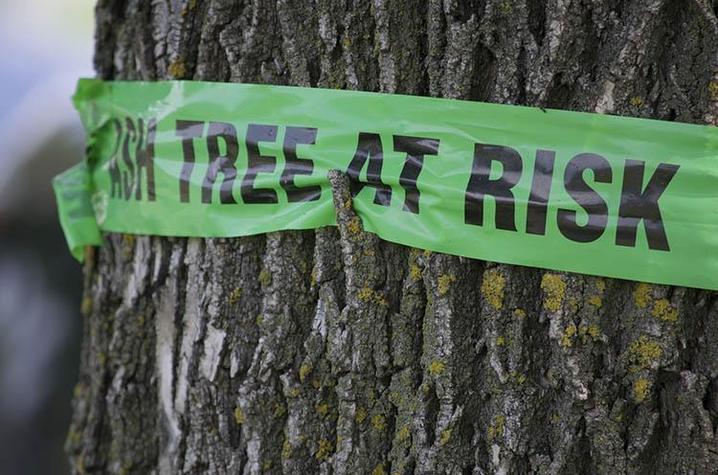Researchers Gather in Lexington July 11 to Share Work in Saving Native Trees

LEXINGTON, Ky. (July 5, 2018) — Every day, American forests, both rural and urban, fight for their health against invasive species and pests. Scientists around the country are working diligently to protect and restore some iconic native species. Many of those scientific partners will gather in Lexington in mid-July to share their research findings.
The public also is welcome to come hear about their progress during a free, public seminar, Forests of the Future, 7 p.m. EDT Wednesday, July 11, at the Fayette County Extension office, 1140 Harry Sykes Way, Lexington.
The researchers are connected through a new mobile application, TreeSnap, which engages citizen scientists and provides researchers with more eyes in the field. This greatly extends their reach to locate resilient trees that will advance their breeding efforts or genomics studies to help in forest restoration.
The researchers, who are working to restore native chestnut, ash, hemlock and other species, represent such organizations as the American Chestnut Foundation, the Forest Restoration Alliance and the U.S. Forest Services. They will briefly present the work they and their organizations have done to combat invasive insects and diseases and to restore these valuable native trees. Dana Nelson, director of the Forest Health Research and Education Center, which is housed in the University of Kentucky Department of Forestry and Natural Resources, will welcome the group.
“Dr. Nelson will speak about tree restoration in general and why it’s important,” said Ellen Crocker, a postdoctoral scholar in the Forest Health Research and Education Center in the University of Kentucky College of Agriculture, Food and Environment. "He’ll describe the current situation where a variety of invasive threats have wiped out these native tree species that are so essential economically, ecologically. And he will address why it’s important to try to bring them back and the type of work that’s been done toward those goals.”
Members of the audience will be able to ask questions after the panel discussion.
The seminar is co-sponsored by UK’s Urban Forest Initiative and the Forest Health Research and Education Center, in partnership with the TreeSnap app, Treesnap.org. Funding is provided by the National Science Foundation’s Plant Genome Research Program.




